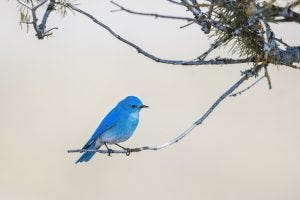May 24, 2021

Bluebird Bio says Skysona – a treatment for the neurological disease CALD – is a step closer after a thumbs-up from EMA reviewers.
The European Medecines Agency’s (EMA) Committee for Medicinal Products for Human Use (CHMP) adopted a positive opinion on the therapy and issued an approval recommendation last week.
The CHMP said the advice was based on a study in which Skysona (elivaldogene autotemcel, formerly Lenti-D) preserved motor function and communication ability and improved survival in 90% of patients treated.

Image: iStock/gjohnstonphoto
CALD – or cerebral adrenoleukodystrophy – is caused by a defect in a gene called ABCD1 that encodes a protein called ALDP this is involved in the processing of fatty substances.
In CALD the sufferers’ lack of ALDP causes a build-up of very long chain fatty acids (VLCFAs) in the brain that eventually results in a loss of neurological function.
The disease is the most common form of adrenoleukodystrophy affecting approximately 1 in 21,000 new born males.
One-time therapy
Skysona is made of immature bone marrow cells that are taken from the patient. A lentivirus virus is used to insert a functional copy of the gene ABCD1 into the cells, which are then infused back into the patient.
Bluebird interim chief medical officer Richard Colvin said, “This positive opinion from the CHMP marks the first regulatory approval recommendation for any gene therapy for CALD, bringing us closer to a one-time, durable treatment option.”
He added that Skysona reduces “the risk of the serious immune complications associated with allogeneic stem cell transplantation (allo-HSCT), which is the only therapeutic option for children with this devastating disease.”
Bluebird said it is on track to submit the Biologics License Application to the US FDA by the middle of the year.
Manufacturing
Skysona, like Bluebird’s other lentivirus-based products, is made by contractors.
A spokeswoman told us “The lentiviral vector used in Skysona was developed by bluebird bio and is manufactured through a CMO.”
She added that bRT – the manufacturing facility Bluebird is building in Durham, North Carolina – is not involved in making the lentivirus vector for Skysona,” going on to says that “the drug product for Skysona is made at a CMO in Europe.”
About the Author
You May Also Like



